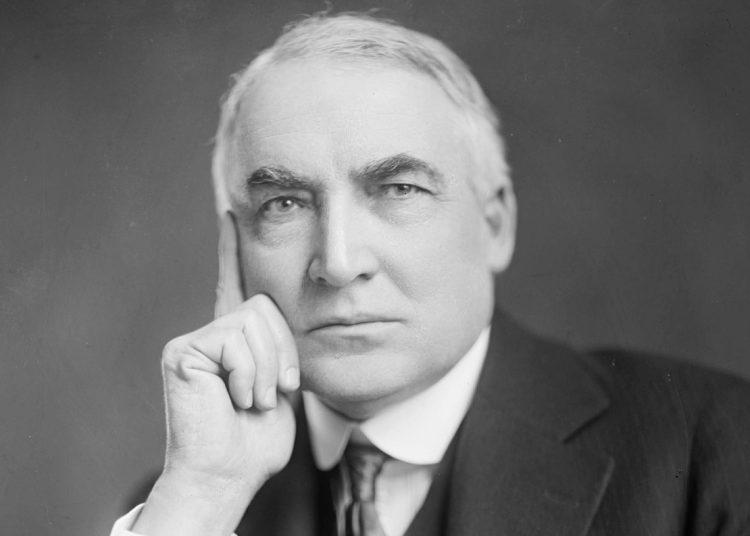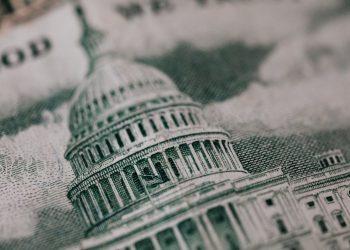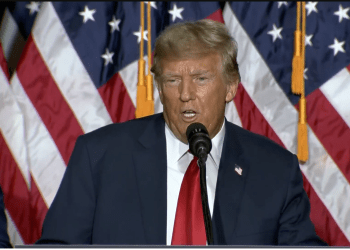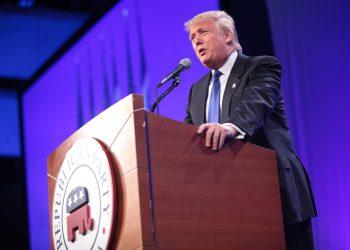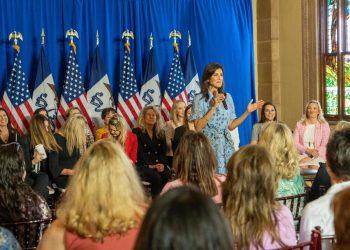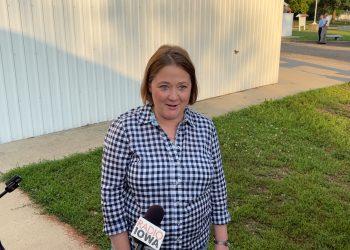Speaking at the annual gala of The American Conservative magazine, Kevin Roberts, President of The Heritage Foundation, offered a defense of America First conservatism. In addition, he offered praise to one of the magazine’s founders, Patrick J. Buchanan. Buchanan, who has retired from writing his column, championed America First conservatism during his campaigns for the Republican presidential nomination in 1992, 1996, and as an independent candidate in 2000. Pat Buchanan was similar to John the Baptist—the voice of one crying in the wilderness.
Buchanan warned the nation about global free trade that was gutting our industry, making us dependent upon foreign and often hostile powers, and decimating communities and the middle class. Further, Buchanan warned about the cultural war and cultural Marxism that was attacking the family and institutions. He also warned about the neoconservative foreign policy that resulted in numerous wars to transplant “democracy” across the globe. Finally, Buchanan warned about unrestricted immigration and the need to limit immigration and to secure the border.
In announcing his first presidential campaign Buchanan called “for a new patriotism where Americans begin to put the needs of Americans first.” In 2016, then presidential candidate Donald J. Trump based his campaign on America First themes that were very similar to Buchanan.
The America First or conservative nationalism of Buchanan and Trump was not a new form of conservatism, but actually harkened back to the Old Right Republicans of the 1920s. President Warren G. Harding, who ran for president in 1920 on an America First policy platform was just one leading example. Following the progressive administration of President Woodrow Wilson, Harding initiated an era of conservative government based upon policies that were rooted in constitutional limited government.
Whereas Wilson was critical of the American Founding, Harding highly espoused the Founders and the Constitution, which he described as “the very base of all Americanism, the ‘Ark of the Covenant’ of American liberty, the very temple of equal rights.” Harding also stated that “it is good to meet and drink at the fountains of wisdom inherited from the founding fathers of the republic.”
In both domestic and foreign policy Harding followed a conservative agenda that was rooted in nationalism. One of the first major problems that confronted Harding was the economic depression of 1920-1921. The economy was suffering from an economic depression and high unemployment. To respond to the economic crisis Harding called for the slashing of tax rates, reducing government spending, and paying down the national debt.
Reform was brought to the federal budget process with the Budget and Accounting Act. As a result, federal spending was actually reduced and with the help of Secretary of the Treasury Andrew Mellon income tax rates began to be lowered.
In terms of foreign policy, Harding took a more nationalist approach. It is often assumed that Harding was an isolationist, but this is untrue. Harding and Secretary of State Charles Evans Hughes led the Washington Naval Conference, which led to disarmament in the aftermath of WWI. Harding believed that foreign policy should serve the national interest, which was a departure from President Wilson’s progressive internationalism.
President Harding also championed the protective tariff. The Republican Party, with its heritage from Alexander Hamilton, had supported protective tariffs. President Wilson had supported more free trade policies. Harding believed that a tariff would benefit and protect American industry, agriculture, and labor. “I believe in the protective tariff policy and know we will be calling for its saving Americanism again,” stated President Harding. The Fordney-McCumber tariff was passed as a result.
Immigration was another crucial issue and Harding also called for limits to immigration. Harding stressed the importance of Americanization, assimilation, and citizenship when it came to immigration. He also believed that flooding the country with immigrants was not only dangerous but would lead to lower wages. In 1924, Congress passed the Johnson-Reed Act, which limited immigration.
In August 1923, President Harding died in office and Vice President Calvin Coolidge continued Harding’s policies. The economic result of Harding’s policies was nothing less than remarkable. As Patrick J. Buchanan wrote: “Unemployment, 12 percent when Harding took office, was 3 percent when Calvin Coolidge left. Manufacturing output rose 64 percent in the Roaring Twenties. Between 1923 and 1927, U.S. growth was 7 percent a year. At decade’s end, America produced 42 percent of the world’s goods.”
Today many of our policy problems are similar to the issues that confronted Harding. President Harding offers policymakers a blueprint for how to solve the numerous domestic and foreign policy challenges that confront our nation today.
Harding’s America First conservative nationalism offers great wisdom, and it is encouraging to see many within the conservative movement and the Republican Party begin to embrace a similar philosophy.
As Harding said, we are forever devoted “to safeguard America first, to stabilize America first, to prosper America first, to think of America first, to exalt America first, and to live for and revere America first.”



